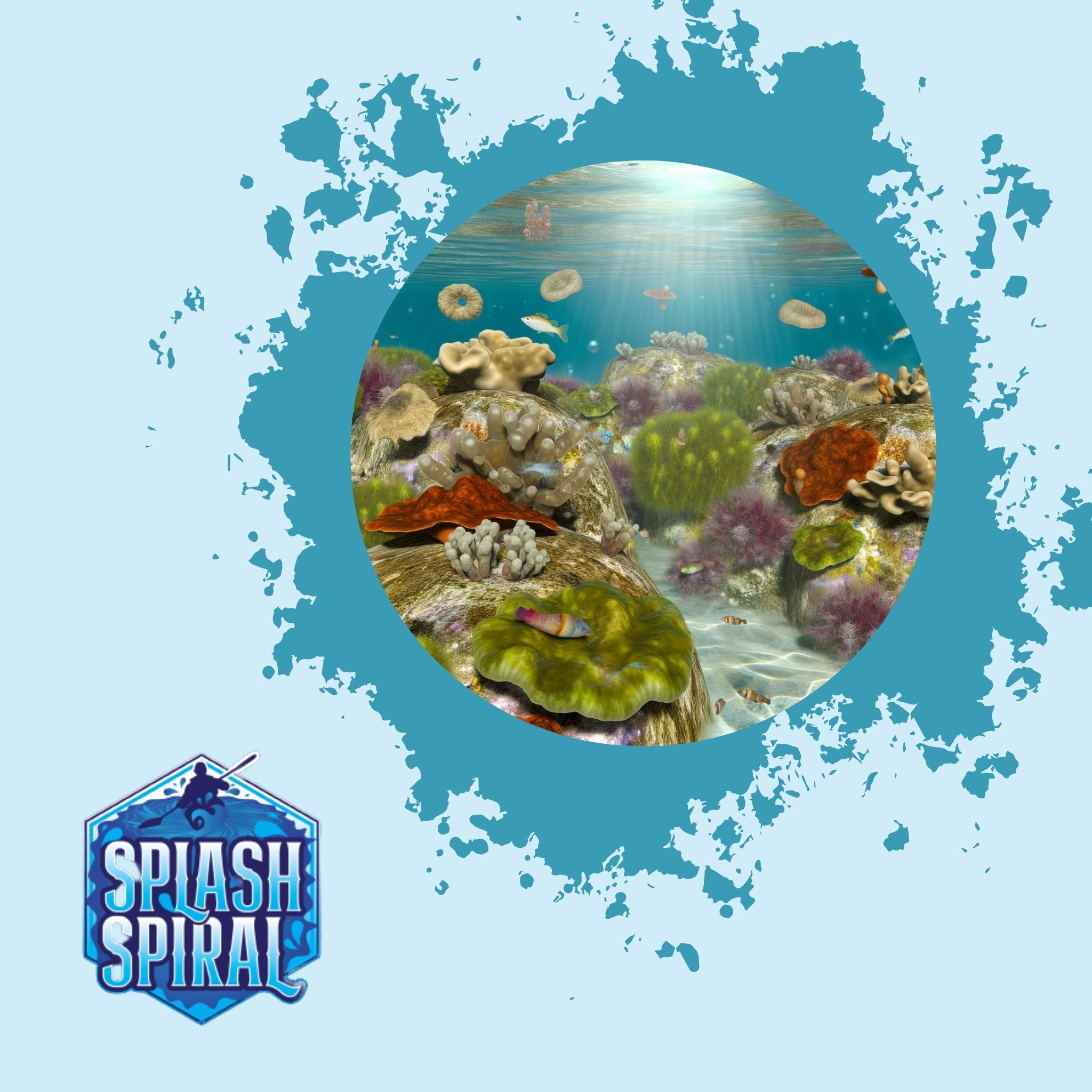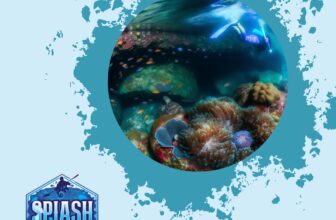
Fungi in marine environments are seldom talked about, yet they play critical roles in underwater ecosystems. In this guide, we’ll dive into the world of marine fungi, emphasizing their importance and contributions to ocean health. Understanding these organisms can elevate our appreciation and stewardship of ocean biodiversity.
Introduction
Marine fungi are the unsung contributors to ocean ecosystems, yet they often go unnoticed. These fungi, residing in salty environments, share similarities with their land-based relatives but exhibit unique adaptations for life underwater. They range from microscopic spores adrift in the water column to extensive networks thriving on submerged substrates.
Importance of Marine Fungi
Understanding marine fungi is crucial as they:
- Play pivotal roles in nutrient cycling
- Break down organic material
- Support marine life
They might not have the allure of colorful coral or the majesty of marine mammals, but they’re indispensable for maintaining the health of our oceans.
Enhancing Ocean Stewardship
By getting to grips with these often-overlooked organisms, divers and ocean enthusiasts can foster:
- Deeper appreciation of marine biodiversity
- Enhanced stewardship of ocean ecosystems
Marine Fungi Importance: Why Should We Care?
Marine fungi might not be the first thing you think about when diving into the vibrant underwater world, but these microscopic organisms are fundamental to maintaining ocean health. Here's why they matter and what they do.
First, marine fungi are key players in maintaining underwater biodiversity. They act as decomposers, breaking down dead organic matter into nutrients that other marine organisms can use. Without fungi, this nutrient recycling process would grind to a halt, leading to less productive and less diverse ecosystems. In simpler terms, no fungi, no food.
Secondly, marine fungi play a crucial role in nutrient cycling. They convert otherwise unusable forms of organic matter into usable nutrients, ensuring that energy flows efficiently through the marine food web. Picture them as underwater recyclers, making sure nothing goes to waste.
Additionally, their role in organic matter decomposition can't be overstated. The ocean is full of plant and animal matter that, without fungi, would accumulate and disrupt marine habitats. This decomposition helps maintain a balance by returning essential nutrients to the ecosystem, supporting everything from tiny plankton to large fish.
For those curious about diving deeper into the interconnectedness of ocean life, check out the "Divers Guide to Ocean Ecosystems".
In summary, marine fungi might be tiny and often invisible, but their contributions are immense. They keep the underwater world humming along, ensuring that all the spectacular marine life you love to explore has the nutrients it needs to thrive. So next time you're admiring a coral reef or discovering a hidden sea cave, remember the fungi working behind the scenes to make it all possible.
The Hidden Heroes of Ocean Ecosystems
When it comes to the unsung heroes of the ocean, marine fungi are right at the top of the list. These microscopic organisms quietly go about their business, yet their impact on underwater ecosystems is monumental. Let's break down what makes marine fungi such crucial players in marine life.
Ecological Roles of Marine Fungi
One of the most essential roles that marine fungi play is in breaking down organic matter. Think of them as the ocean's cleanup crew, decomposing dead plants and animals to recycle nutrients back into the ecosystem. This nutrient recycling is vital for sustaining the nutrient balance necessary for life in the ocean.
Moreover, marine fungi form mutualistic relationships with a myriad of marine organisms. For instance, they team up with algae to form lichens, contributing significantly to coastal ecosystems. These lichens can weather harsh conditions, all thanks to the protective and hardy nature of the fungi involved.
Specific Examples
A striking example of marine fungi's ecological function can be found in the species Lulworthia, which specializes in breaking down wood submerged in seawater. Consider it nature’s very own underwater carpenter, shaping and maintaining marine habitats by decomposing driftwood and facilitating nutrient cycling.
Another example is the marine yeast Debaryomyces hansenii. This fungus thrives in saline environments and plays a significant role in decomposing organic matter, creating a more balanced ecosystem by preventing the buildup of decaying material.
Mutualistic Relationships
Marine fungi’s symbiotic relationships extend beyond algae. They often engage in complex interactions with marine sponges, providing them with essential nutrients while benefiting from the sponge's habitat for protection and sustenance. These relationships enhance the diversity and stability of coral reefs and other marine environments, making fungi indispensable partners in underwater life.
By understanding these hidden heroes, we can gain insights into their pivotal roles, ensuring that when we dive, we're not just appreciating the scenery but also recognizing the intricate and essential processes that keep ocean life thriving.
For more detailed scientific background and the implications of these processes, check out "Ocean Deoxygenation" which further explains the dynamic roles marine fungi and other underwater organisms play in our oceans.
Marine Fungi and Underwater Biodiversity
Marine fungi are foundational pillars in the vast underwater world, contributing significantly to biodiversity. Though often overshadowed by more popular marine life, their roles are pivotal in sustaining the intricate balance of ocean ecosystems.
Marine fungi are indispensable players in marine food webs. Acting as decomposers, they break down dead organic matter, recycling nutrients back into the ecosystem. This process supports the growth of primary producers like phytoplankton, which in turn feeds a variety of marine organisms, from tiny zooplankton to colossal whales. Without marine fungi, the cycle of life in the ocean would be disrupted, leading to negative cascading effects throughout the ecosystem.
In coral reefs, marine fungi are unsung heroes that contribute to the health and diversity of these vibrant habitats. Some fungi form mutualistic relationships with corals, enhancing their resistance to stress factors like rising sea temperatures and acidification. These fungi can also inhibit the growth of pathogenic microbes, protecting corals from diseases that can devastate entire reef systems. By supporting coral health, fungi indirectly nurture the myriad species that rely on reefs for shelter and food.
Deep-sea environments, often perceived as barren, are teeming with life thanks in part to marine fungi. Specialized fungi in these extreme conditions break down complex organic compounds, aiding in the recycling of nutrients in an environment where resources are scarce. Their activity supports diverse communities of bacteria, invertebrates, and other organisms adapted to the high pressure, low temperature, and darkness of the deep sea.
To sum up, marine fungi are key architects of underwater biodiversity. Their essential roles in nutrient cycling, habitat health, and the formation of mutualistic relationships underscore their importance in marine ecosystems. As divers and ocean enthusiasts, recognizing and appreciating these hidden heroes can deepen our connection to the ocean and inspire a commitment to protecting its intricate web of life.
Conservation Awareness: Protecting Marine Fungi
Despite their critical roles in ocean health, marine fungi are largely overlooked when it comes to conservation efforts. Presently, the conservation status of marine fungi is not well-documented, leaving a massive gap in our understanding of their vulnerabilities and the threats they face. This is partly due to the difficulty in studying these organisms, given their often-microscopic size and hidden lifestyles, but it's also a result of a general lack of awareness. For divers and ocean enthusiasts, this represents an opportunity to heighten recognition and support efforts that bridge this knowledge gap.
Current Challenges
Marine fungi face multiple challenges that threaten their existence. Pollution, climate change, ocean acidification, and habitat destruction all play significant roles in diminishing fungal populations. For example, runoff from agricultural and industrial activities introduces harmful substances into the marine environment, compromising the delicate balance that marine fungi help maintain. Additionally, rising ocean temperatures and shifting pH levels can disrupt fungal life cycles and mutualistic relationships with other marine species, further endangering these organisms.
Strategies for Conservation Awareness
To effectively protect marine fungi, divers and ocean enthusiasts can adopt several strategies:
-
Educate and Advocate: Spread awareness about the importance of marine fungi. Discuss their roles in nutrient cycling, organic matter decomposition, and biodiversity with fellow divers, friends, and community members.
-
Participate in Citizen Science: Engage in initiatives that monitor and report on marine fungi. Organizations often need volunteers to help gather data on ocean health, providing invaluable information for researchers.
-
Support Sustainable Practices: Reduce personal contributions to marine pollution by advocating and practicing sustainable diving and snorkeling habits. Avoid touching or disturbing underwater habitats and ensure that diving equipment is free of contaminants that could harm marine ecosystems.
- Promote Research Funding: Encourage funding for marine fungi research. Support organizations and scientific endeavors focused on understanding and preserving these crucial organisms.
By implementing these strategies, divers can play an active role in the conservation of marine fungi, ensuring these hidden heroes continue to support the vitality of underwater ecosystems.
For additional insights on how you can get involved in marine conservation, check out our article on "Sea Turtle Conservation" and discover how your passion for diving can make a difference.
Why Divers Should Care About Marine Fungi
Let’s get real for a minute. As divers, we’re all about discovering the unseen and the extraordinary. Yet, some of the smallest and most elusive life forms underwater—marine fungi—often escape our attention. Here’s why we should care about them.
Observation and Appreciation
First off, spotting marine fungi can be like an underwater treasure hunt. These tiny powerhouses live in all sorts of places, from coral reefs and mangroves to deep-sea habitats. They might not be as flashy as a school of neon fish, but they play a crucial part in maintaining the underwater ecosystems we love to explore. Keep an eye out for intriguing patterns on decomposing organic matter or biofilm on surfaces as you traverse coral walls and sandy bottoms. These are signs of marine fungi hard at work.
Practical Conservation Tips
As custodians of the deep blue, there’s a lot we can do to help preserve marine fungi habitats. Here are a few straightforward actions:
-
Mind Your Buoyancy: It’s always good practice but especially crucial near sensitive areas like coral reefs where fungi might be busy breaking down organic material. No kicking up sediment storms, please.
-
Dive Responsibly: Follow established dive paths and avoid disturbing underwater environments. Even small disturbances can affect delicate fungal colonies.
-
Be an Advocate: Spread the word about the importance of marine fungi. Share your knowledge with fellow divers and ocean enthusiasts. The more people understand their role, the better we can work together to protect these unseen heroes.
It’s time we give marine fungi their due respect. They’re not just the unsung heroes of ocean health; they’re vital players that ensure we continue to enjoy vibrant and thriving underwater landscapes. And who knows? Your next dive might just turn you into a marine fungi enthusiast. Dive smart, and remember—it’s the little things that make the biggest difference.
For more on diving responsibly and nurturing a passion for the marine world, check out our Scuba Diving Passion guide.
Conclusion
Importance of Marine Fungi
Understanding and valuing marine fungi is essential for maintaining the health of our ocean ecosystems. These unseen players contribute significantly to:
- Nutrient cycling
- Decomposition
- Overall underwater biodiversity
Marine fungi influence the very balance of marine life.
Embracing Marine Fungi
As divers and ocean enthusiasts, embracing the importance of marine fungi leads us to more thoughtful and holistic conservation efforts.
Take a Moment
Next time you gear up to explore the underwater world, take a moment to appreciate the unseen fungi working tirelessly beneath the waves. Awareness and respect for these vital organisms can champion their role in the marine environment.
Diving with Purpose
- Dive in with curiosity
- Remember that every small action counts
By understanding and valuing marine fungi, you're contributing to the incredible diversity of our oceans.







